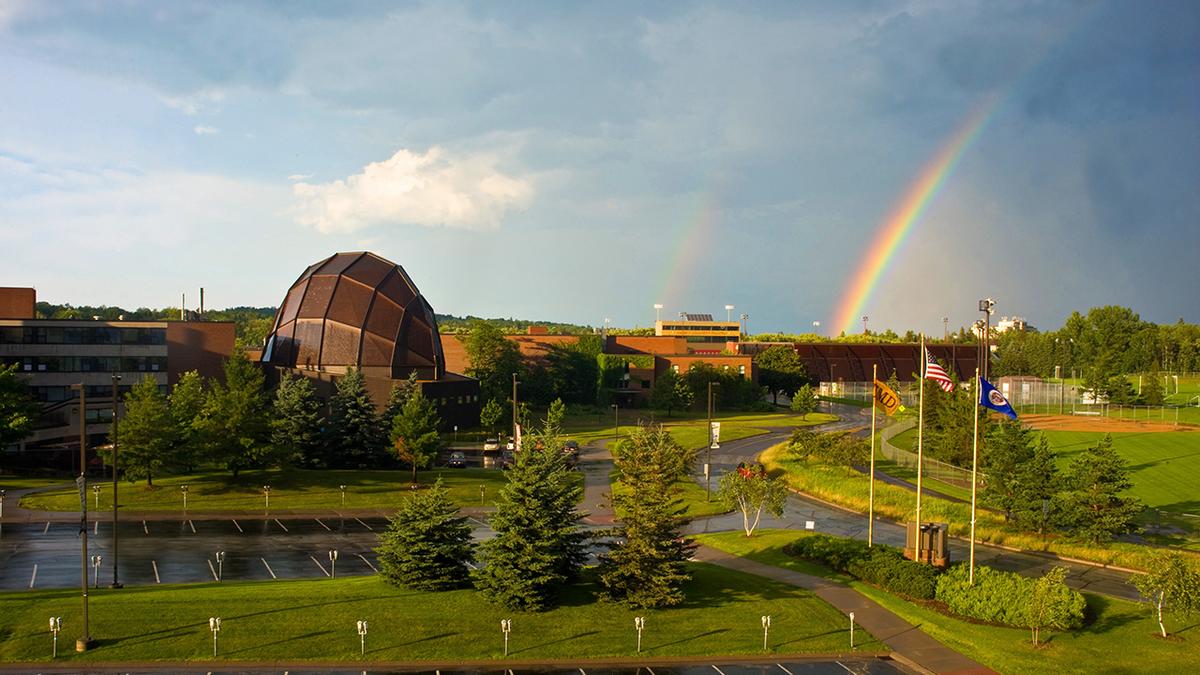Earlier this year, the Sustainability Tracking Assessment and Rating System (STARS) awarded UMD a gold level rating for campus sustainability. This was made possible in part by the hard work of College of Education and Human Service Professions graduate student Ashlyn Teather.
Teather is in her second year of the Master of Environmental Education program. Her work with Julie Etterson, director of the Institute on the Environment and professor in the Department of Biology, led to UMD becoming one of just 127 universities in the United States to attain the gold star rating.
The STARS looks at a variety of factors that contribute to campus sustainability such as food sources, course offerings, extracurriculars, and landscape management. To earn a gold star, a campus must earn at least 65 points on the STARS index.
Teather played a crucial role in the project by gathering all the data needed to submit to STARS for review. “I went through all the courses offered at UMD and much of the research publications completed by faculty and determined sustainability-related courses and research that UMD had completed,” she says. “It was really interesting to learn about all the research faculty are doing on campus related to sustainability, and the underlying sustainability themes present in many courses offered.”
The data gathered by Teather is impressive. Not only do 19 of the 29 departments at UMD offer a sustainability-related course, but 90.65 percent of UMD graduates will have taken a sustainability course. “Because UMD had a certain percentage of sustainability-related courses and faculty involved in sustainability-related research,” notes Teather, “we got more points on the STARS report that helped with the bump up to gold.”
Teather also acknowledges the importance of sustainability on college campuses like UMD, saying, “I think sustainability is important on campus because it’s what students want … College students want a campus that reflects their values.”
Etterson agrees with Teather, adding that, “Sustainability is an approach to living and learning where we think about how our actions today impact other people—today and into the future. Basically, sustainability actions improve the quality of life on campus and create a resilient place to live and study.”
The next step for UMD is to attempt to earn a platinum rating, which only five colleges in the U.S. have. Since STARS applications are only completed every three years, UMD has time to achieve that goal. “My sense is that our campus will need to invest heavily in reducing its carbon footprint for us to be able to reach that level,” Etterson explains.
Both Teather and Etterson agree that their work on sustainability at UMD will continue to grow. Etterson notes that she intends to support this important work in any way she can. Teather emphasizes that her “overall goal is to help further UMD's sustainability mission.”

